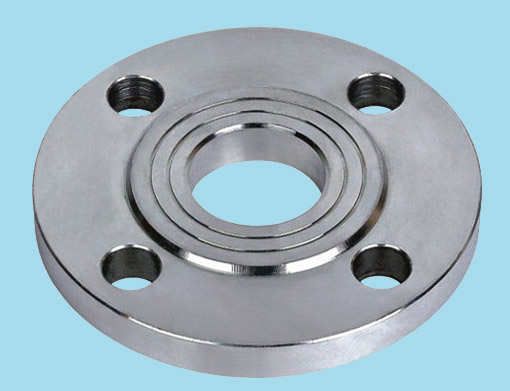Passivation Process and Features of Stainless Steel Flanges
Stainless steel flanges have excellent corrosion-resistant performance in water with different qualities, even under the ground, due to thin but solid oxidation film. Water with different qualities does not need to be processed, except when sterilization operation is required. Besides, corrosive diffusate of exceeding standards is not produced to ensure the sanitation of water and prevent secondary pollution. Such flanges can endure high water flow impact pressure of up to 30m per second.
Passivation process of stainless steel flanges can be divided into two kinds: wet process and dry process. Passivation effect of the flanges is determined by their original materials and passivation technology. Specifically, the influential factors include contained elements, metallographic structure, machining status and so on.
Stainless steel flanges are widely applied in various fields and industries. They are characterized by safe and reliable connection, ease to use, conformity with sanitation and environmental protection requirements, low flow pressure loss, high system compatibility, selectable open installation or concealed installation, free-of-charge renewal and maintenance, high cost performance, etc. Hence, such flanges are widely applied in civil applications, like hot and cold water, direct drinking water, heat supply, air conditioner, fire protection and fuel gas, and also in industries related to low-pressure fluid transportation, such as pharmaceutical, beverage, food and chemical industries.
Passivation process of stainless steel flanges can be divided into two kinds: wet process and dry process. Passivation effect of the flanges is determined by their original materials and passivation technology. Specifically, the influential factors include contained elements, metallographic structure, machining status and so on.
Stainless steel flanges are widely applied in various fields and industries. They are characterized by safe and reliable connection, ease to use, conformity with sanitation and environmental protection requirements, low flow pressure loss, high system compatibility, selectable open installation or concealed installation, free-of-charge renewal and maintenance, high cost performance, etc. Hence, such flanges are widely applied in civil applications, like hot and cold water, direct drinking water, heat supply, air conditioner, fire protection and fuel gas, and also in industries related to low-pressure fluid transportation, such as pharmaceutical, beverage, food and chemical industries.

Related News
- Low-Temperature Flange Sealing Solutions for Cryogenic Chemical Pipelines
- Innovative Technology for Automatic Alignment in Underwater Flange Assembly
- Stamped Steel Slip-On Flanges
- Design and Finite Element Analysis of Anchor Flanges for Oil & Gas Pipelines
- Forming and Manufacturing Technology of Anchor Flanges
- Structure and Materials of Anchor Flanges
- Flanges for Pressure Vessels
- An Introduction to Socket Welded Neck Flanges
- Heat Treatment & Mechanical Properties of ASTM A350 LF3 Flanges (Part Two)
- Heat Treatment & Mechanical Properties of ASTM A350 LF3 Flanges (Part One)

